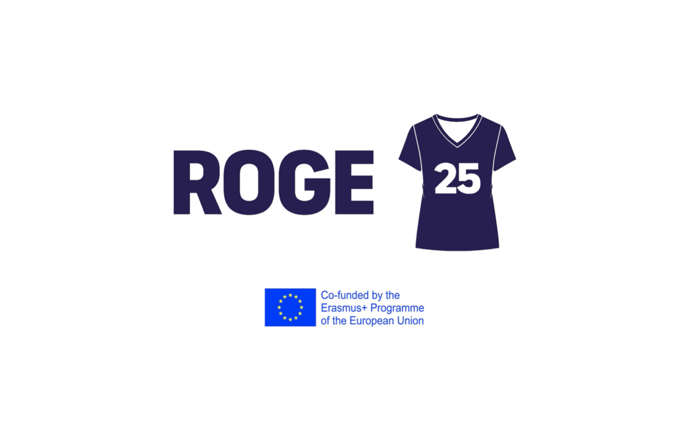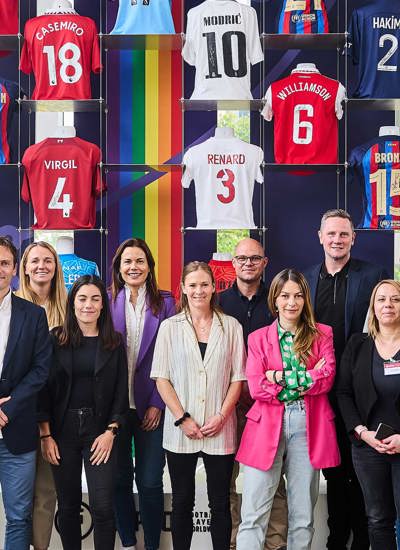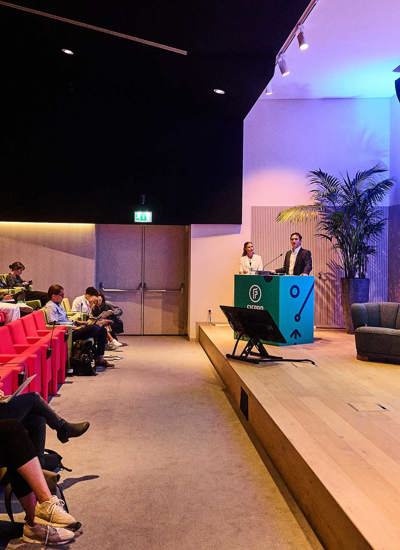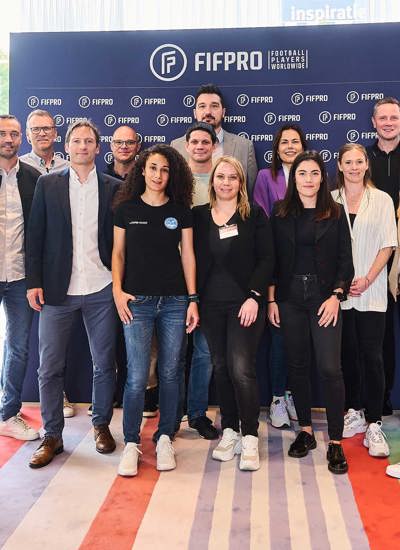
- Players and unions from 12 European countries, as well as stakeholders, engage in workshops in Bilbao ahead of Champions League final to better understand scale of professionalisation in domestic women’s football
- The event was part of the Raising Our Game Europe 2025 (ROGE25) initiative designed to elevate standards across different European nations
- Co-funded by the European Union’s Erasmus+ Programme, ROGE25 is designed to build the capacity of participating unions in Europe to better support women’s footballers
Players from across Europe gathered in Bilbao ahead of the UEFA Women’s Champions League final to share best-practice and insight on increasing the level of professionalism in women’s domestic football as part of the Raising Our Game Europe 2025 initiative.
The panel event brought together players and unions from 12 European countries, as well as stakeholders like UEFA and ECA, to engage in panel discussions and workshops on how to elevate standards across different European nations.
Raising Our Game Europe 2025, also known as ROGE25, is designed to develop tools and resources to support player associations with promoting equal opportunities, access, and inclusion for women’s players. Co-funded by the European Union’s Erasmus+ Programme, ROGE25 is carried out in collaboration with the University of Bordeaux.
FIFPRO Europe are carrying out the project with seven partner unions (Cyprus, Denmark, France, Italy, Netherlands, Portugal, Slovenia), and five affiliate unions (England, Greece, Scotland, Spain, Sweden).

FIFPRO Europe General Secretary Joachim Walltin said: "The main objective of this project is to help our unions improve standards in women’s football and give players the conditions they really deserve to grow in the game and become professionals.
"The players are best placed to share their experiences from different markets. We see some countries taking the lead now, but we also need to hear voices from players in countries where they still have a long way to go. We need all players to have professional conditions and contracts to perform at their potential."
The event kicked off with a Q&A involving UEFA’s Head of Women’s Football Development Emma Sykes and FIFPRO’s Director of Global Policy & Strategic Relations Women's Football Sarah Gregorius on their aspirations for professional women’s football in Europe.
Players then gave their feedback on what it means to be truly professional in women’s football and what key aspects are missing from professionalisation pathways. The player panel, moderated by ROGE25's project coordinator Claudia van den Heiligenberg, offered thoughtful discussions and viewpoints from a range of different leagues with Rita Fontemanha (Sporting, Portugal), Amber Verspaget (Feyenoord, Netherlands), Charoula Dimitriou (Panathinaikos, Greece) and Martina Brustia (Sampdoria, Italy) giving invaluable insight.
"The panel was about giving the players a voice and for stakeholders to understand what our concerns are, what we think, and where we’re currently at," said Sporting defender Fontemanha. "That point of view and that vision is also important to keep developing and raising the game. For me, being truly professional is having a guarantee that I can simply be focused on performing, training and rest."
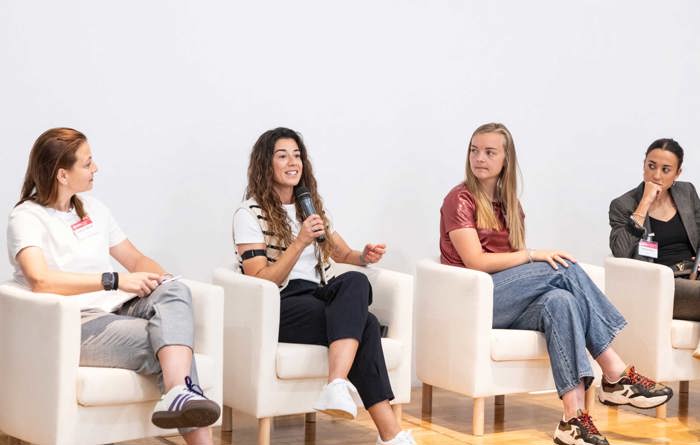

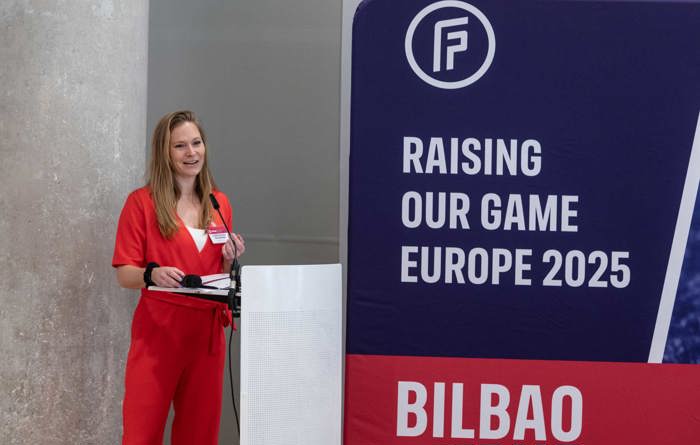
Feyenoord defender Verspaget said: "What does it mean to be truly professional? I think it’s about clubs having great facilities. Playing at Feyenoord, I have great facilities but the bottom clubs in our league don't have that. I think that's a big thing to develop."
A panel then followed on advancing professional women’s football, analysing how stakeholder partners in European football can work together for the next phase of professional development. Moderated by Dr Alex Culvin, FIFPRO’s Head of Strategy and Research of Women's Football, panellists included Aston Villa and England’s Lucy Staniforth, UEFA Vice President Laura McAllister, ECA’s Head of Women’s Football Claire Bloomfield, and former FA Director of the Women’s Professional Game Kelly Simmons.
ROGE25’s senior researcher Caitlin Fisher, a former professional footballer, then shared findings of the project alongside Nicolas Delorme, an associate professor in sociology of sport at the University of Bordeaux. Fisher presented the FIFPRO Wheel of Player Conditions, containing 11 dimensions that are seen as the foundations of global standards that will help support the professionalisation of women’s football.
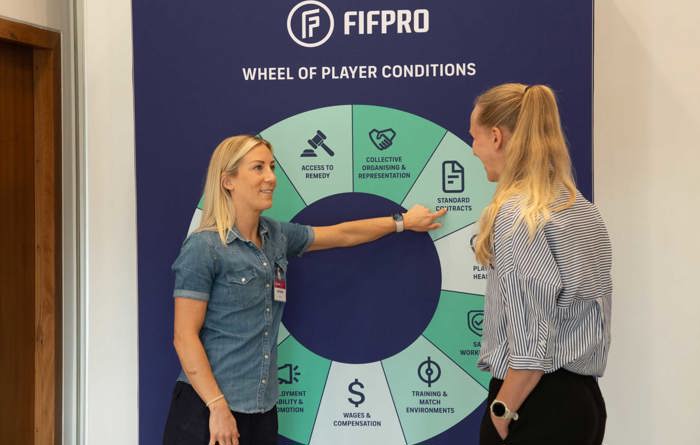
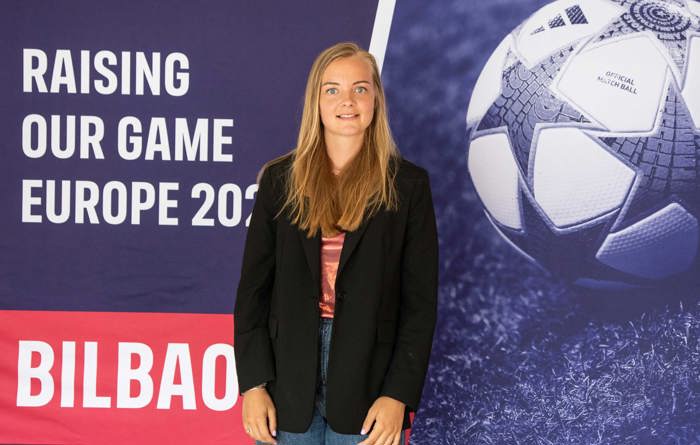
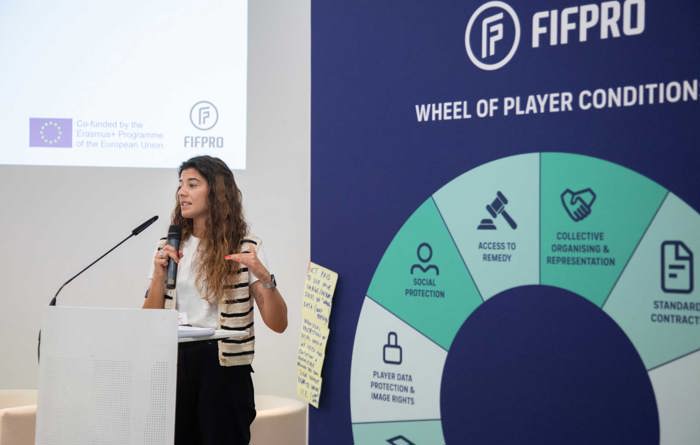
Fisher said: "We've been developing indicators for each of the dimensions in the wheel, which includes the likes of player health, safe workplaces, training and match facilities, access to remedy, and going into a deeper dive into each of these to say what is necessary in order to set a foundation for the women's game to professionalise; something that we don't drop below. This is player-centric, which is why player feedback is the heart of it."
Players then engaged in workshops, speaking from lived experiences as they gave considered feedback on elevating conditions and standards. They also illustrated what their ideal collective vision for professionalisation is and mapped out priorities for a toolkit based on the FIFPRO Wheel of Player Conditions.
"It's important to hear the player voice because we experience this every day," said Verspaget. "I experience every day how the conditions are, how the facilities are, and what it's like to play against professional players, instead of part-time players like myself. It's good to hear voices from other countries on this."
Fontemanha added: "We need to show and make people understand what we are going through. For example, a club president that has never played football might not know what we feel as players, what we really need, and why it's so important for us to have good conditions – from pitches and locker rooms to kits that fit us."
The next steps for ROGE25 will see a toolkit drafted to support player unions. Players will also engage in further workshops with their domestic unions before a dissemination conference in December.
Fisher concluded: "The fact that professionalisation is not a destination was a common thread throughout the day; it is a process rather than a goal. We need to be responsive and resilient as we go along the way."
Raising Our Game Europe 2025
